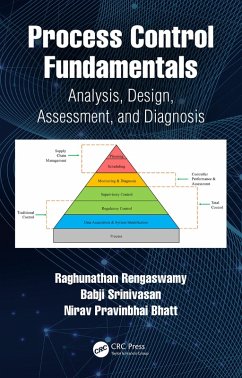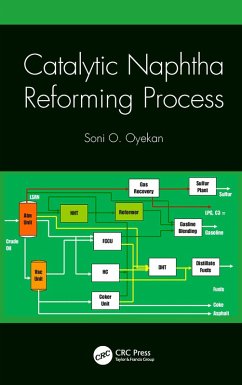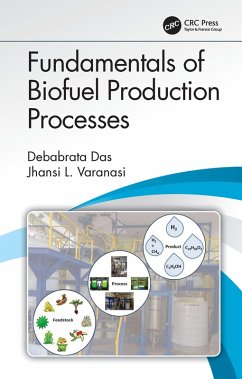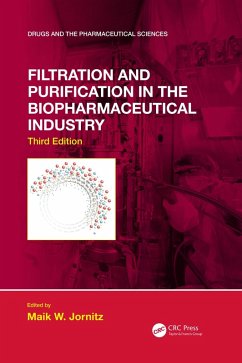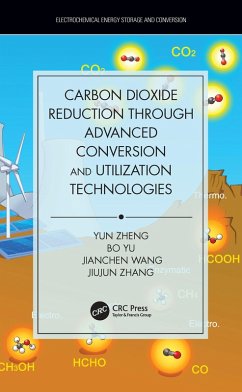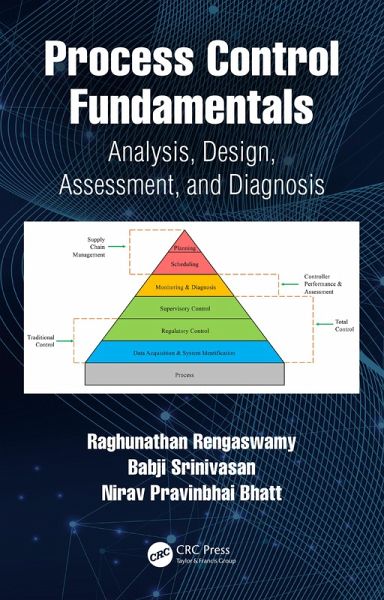
Process Control Fundamentals (eBook, ePUB)
Analysis, Design, Assessment, and Diagnosis
Versandkostenfrei!
Sofort per Download lieferbar
113,95 €
inkl. MwSt.
Weitere Ausgaben:

PAYBACK Punkte
57 °P sammeln!
The field of process control has evolved gradually over the years, with emphasis on key aspects including designing and tuning of controllers. This textbook covers fundamental concepts of basic and multivariable process control, and important monitoring and diagnosis techniques.It discusses topics including state-space models, Laplace transform to convert state-space models to transfer function models, linearity and linearization, inversion formulae, conversion of output to time domain, stability analysis through partial fraction expansion, and stability analysis using Routh table and Nyquits ...
The field of process control has evolved gradually over the years, with emphasis on key aspects including designing and tuning of controllers. This textbook covers fundamental concepts of basic and multivariable process control, and important monitoring and diagnosis techniques.
It discusses topics including state-space models, Laplace transform to convert state-space models to transfer function models, linearity and linearization, inversion formulae, conversion of output to time domain, stability analysis through partial fraction expansion, and stability analysis using Routh table and Nyquits plots. The text also covers basics of relative gain array, multivariable controller design and model predictive control. The text comprehensively covers minimum variable controller (MVC) and minimum variance benchmark with the help of solved examples for better understanding. Fundamentals of diagnosis of control loop problems are also explained and explanations are bolstered through solved examples. Pedagogical features including solved problems and unsolved exercises are interspersed throughout the text for better understanding.
The textbook is primarily written for senior undergraduate and graduate students in the field of chemical engineering and biochemical engineering for a course on process control.
The textbook will be accompanied by teaching resource such a collection of slides for the course material and a includsolution manual for the instructors.
It discusses topics including state-space models, Laplace transform to convert state-space models to transfer function models, linearity and linearization, inversion formulae, conversion of output to time domain, stability analysis through partial fraction expansion, and stability analysis using Routh table and Nyquits plots. The text also covers basics of relative gain array, multivariable controller design and model predictive control. The text comprehensively covers minimum variable controller (MVC) and minimum variance benchmark with the help of solved examples for better understanding. Fundamentals of diagnosis of control loop problems are also explained and explanations are bolstered through solved examples. Pedagogical features including solved problems and unsolved exercises are interspersed throughout the text for better understanding.
The textbook is primarily written for senior undergraduate and graduate students in the field of chemical engineering and biochemical engineering for a course on process control.
The textbook will be accompanied by teaching resource such a collection of slides for the course material and a includsolution manual for the instructors.
Dieser Download kann aus rechtlichen Gründen nur mit Rechnungsadresse in A, B, BG, CY, CZ, D, DK, EW, E, FIN, F, GR, HR, H, IRL, I, LT, L, LR, M, NL, PL, P, R, S, SLO, SK ausgeliefert werden.




